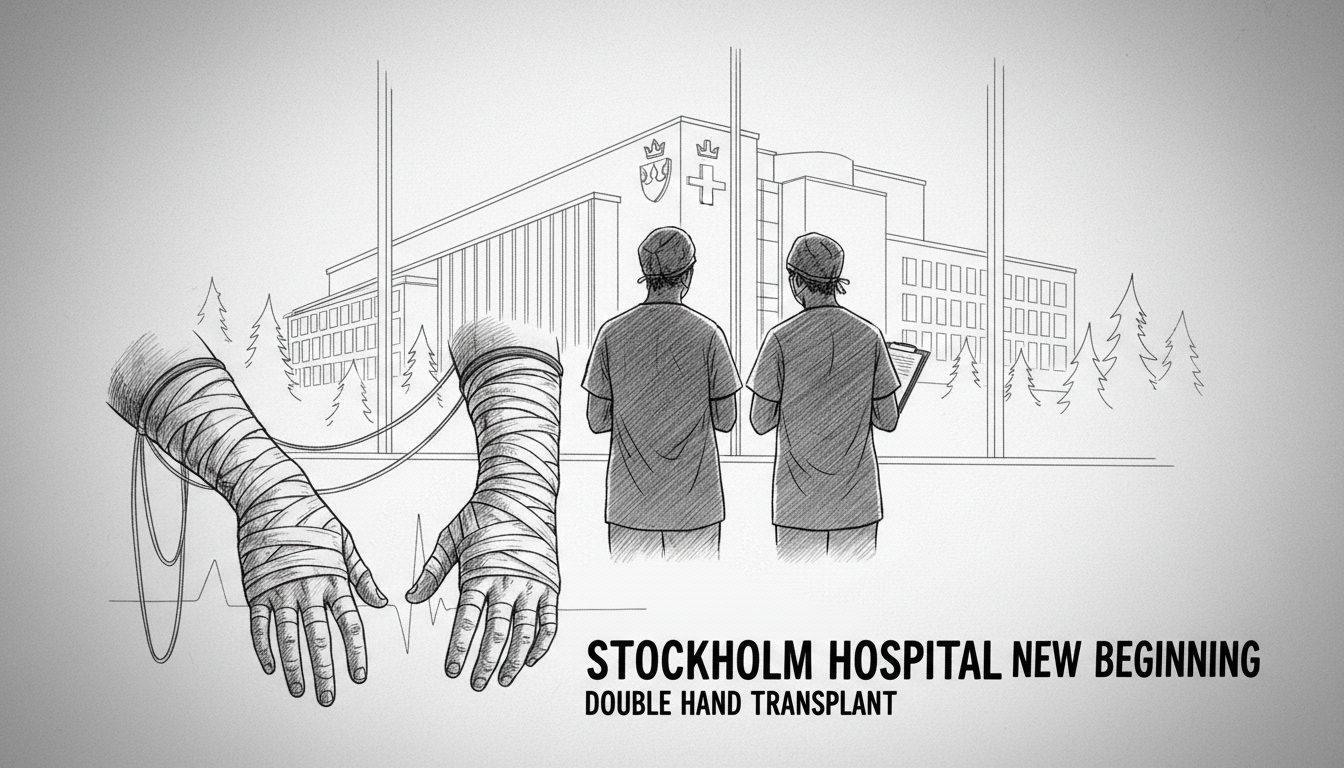A patient who lost both hands to sepsis has received a groundbreaking double hand transplantation at Södersjukhuset in Stockholm. The complex surgery took place during the summer months, and the patient has already begun training to regain function in both new hands.
Tobias Laurell, project leader for the hand transplantation program and a hand surgeon at the hospital, explained their preparation process. "We have prepared for several years and remained ready for a transplantation. When a suitable donor was identified, we could activate the entire chain," he said in a statement.
This marks only the second double hand transplantation ever performed in Sweden. The first procedure occurred at Sahlgrenska University Hospital in Gothenburg. For the surgical team at Södersjukhuset, this represented their inaugural hand transplantation operation.
The massive medical effort involved approximately 40 healthcare professionals working simultaneously across multiple operating rooms. Surgeons with various specialized skills participated in the marathon procedure, which lasted 19 hours from start to finish.
Laurell described the meticulous planning required. "We created detailed instructions and scenario training beforehand, even mapping where every instrument and person would stand in the operating room. It was an enormous team effort," he noted.
Hospital officials emphasized that successful hand transplantation requires multiple factors to align perfectly. The donor's hand size, blood type, antibodies, and skin color must match the recipient's specifications. The patient must also possess sufficient psychological strength and have processed any PTSD symptoms resulting from their original hand loss.
Tobias Tandrup, head of the rehabilitation unit at the hand surgery clinic, highlighted the importance of patient preparation. "A major part of the pre-surgery preparations involved ensuring motivation and understanding of how extensive the rehabilitation would be. It is extremely important that the patient understands this requires enormous dedication and training," he explained.
Physical and occupational therapists now work with the patient daily. The rehabilitation process will continue for several months. The patient will require lifelong immunosuppressive treatment to prevent rejection of the transplanted hands.
This medical achievement demonstrates Sweden's growing expertise in complex transplantation procedures. The success at Södersjukhuset expands the country's capacity for handling rare and demanding surgical cases. It represents a significant step forward for Scandinavian medical science and offers hope to other patients facing similar challenges.
The hospital's ability to coordinate such a large medical team for an extended procedure shows advanced organizational capabilities. This development strengthens Stockholm's position as a center for specialized medical care in Northern Europe.
Medical professionals will monitor the patient's progress closely in the coming months. The ultimate success of the transplantation will depend on both physical recovery and psychological adaptation to the new hands.

